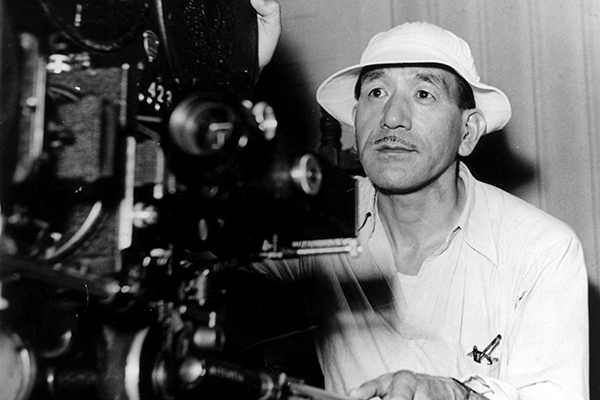Taking a chance on Ozu
Posted on 19.10.2023
Always the same, always new, the films of Yasujiro Ozu (1903-1963) tell the same simple story over and over again, about the same people in the same city, Tokyo. And they touch our hearts.
THE FOUR CATEGORIES OF OZU
In the six films screened at Lumière, the world of Yasujiro Ozu unfolds according to very specific themes. Film noir: Dragnet Girl (1933), serene dramas: There Was a Father (1942), Record of a Tenement Gentleman (1947), The Munakata Sisters (1951), magnificent tragedy: A Hen in the Wind (1948), and dramatic comedy: The End of Summer (1961). They all have in common a profoundly moving narrative, whose central premise is the cycle of life that must be lived in the present.
COUPLES AND PARENTS
The family is the central focus of Ozu's cinema. It is divided into two great intimate adventures: that of the couple, in the tragic case of A Hen in the Wind, or parenthood, from both the viewpoint of the parents and the children in the sublime Chaplin-style melodramas There Was a Father and Record of a Tenement Gentleman. From these very specific relationships, Ozu crafts a cinema that deals with seriousness and heartbreak and the futility of pride in the face of an increasingly profound reality.
 © DR
© DR
SAKÉ AND GAMES
In Ozu films, there's (a lot of) drinking and playing. Games of Go and mahjong in A Hen in the Wind, There Was a Father, Dragnet Girl... keep the characters busy in their search for themselves, often without really knowing it, or in search of a certain kind of oblivion by drinking themselves blind. Forgetting by distracting oneself makes Ozu's cinema very universal. We drink in The Munakata Sisters, we stop off at the bars in The End of Summer. Drinking also means telling the truth after playing well.
KIMONOS AND TATAMIS
Ozu's Japan is like youth, torn between tradition and modernity. The girls in kimonos or Western-style clothing who go to work as typists in Dragnet Girl take responsibility for their choices of dress and character. After all, Ozu is no pushover. "I'm a devious person", says Mariko in The Munakata Sisters, giving the famous "Ozu look", almost face to face with the camera, which is also placed on the tatami mat, so that the viewer can fully appreciate the impact of her character’s words.
Virginie Apiou
SCREENINGS
Dragnet Girl by Yasujiro Ozu (Hijosen no onna, 1933, 1h41)Institut Lumière (Hangar) – Saturday, 21 October at 11.30am
There Was a Father by Yasujiro Ozu (Chichi ariki, 1942, 1h32)
Pathé Bellecour – Friday, 20 October a 10.45am
Record of a Tenement Gentleman by Yasujiro Ozu (Nagaya shinshiroku, 1947, 1h12)
Lumière Terreaux - Saturday, 21 October at 4pm
A Hen in the Wind by Yasujiro Ozu (Kaze no naka no mendori, 1948, 1h24)
Lumière Terreaux – Thursday, 19 October at 11am
UGC Astoria - Friday, 20 October at 11am
The End of Summer by Yasujiro Ozu (Kohayagawa-ke no aki, 1961, 1h43)
Lumière Terreaux - Friday, 20 October at 2pm
Cinéma Opéra - Saturday, 21 October at 7pm
Cinéma Comœdia – Sunday, 22 October at 11.15am

